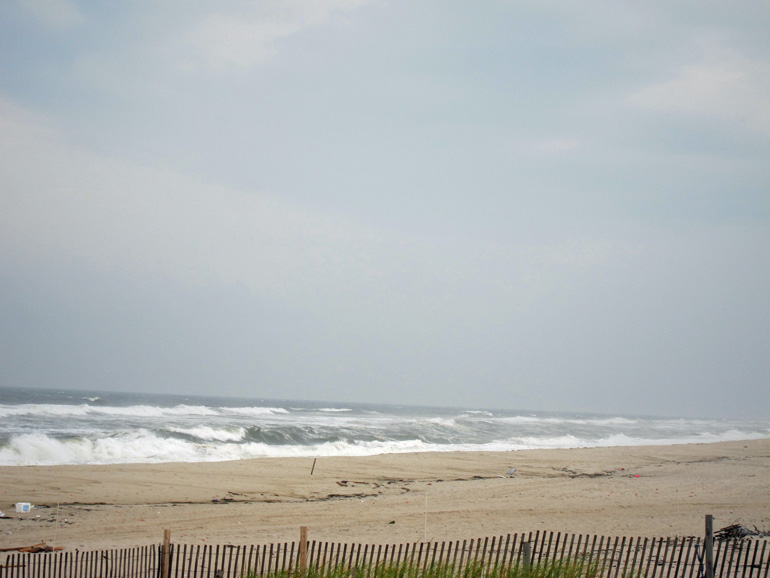Gotham Diary:
Windy
5 September 2012
As I walked by the roaring sea last night, I wondered, what is the idea of order at Key West? What is that “blessed rage for order” of which Wallace Stevens speaks? The waves breaking alongside me were convulsive, unlike the Gulf Coast surf at Key West, where, unless a hurricane were raging, it is difficult to imagine
The grinding water and the gasping wind.
I remembered the line near the end,
Fixing emblazoned zones and fiery poles
It is an order that transcends human ideas of orderliness. The very word “order” assumes here an immense scope, as in the Linnaean sense of “the order of primates.” It is a kind of modernist, post-human order, but, in its gorgeousness — Stevens’s poetry — quite anti-modern.
Walking to the beach this morning, to take some photographs, I listened to the wind in the pines and considered a reflection that will go into Inventory: As a boy, I was aware that the lives of top corporate executives (of which my father was one) was strangely protected, as if by an impalpable bubble, from the general inconveniences of everyday life, and also that there was much more to the acquisition of power than the display of merit. What I did not have the intellectual equipment to realize at the time was that this world replicated in many respects that of the courts of the ancien régime. The men in the offices on the top floor submitted to an occasionally belittling competition for influence in exchange for accommodations of understated luxury. This extended from excellent secretarial services and cars and drivers to emergency repairs in their homes, not to mention flights on company planes that, among other things, obviated the need to check in at the airport and wait in a lounge. These men plugged into a network of executives at other companies — masquerading as golfing partners — in which arrangements could be made for the enhancement of their families’ lives: tickets to the symphony, interviews for children’s summer jobs. There was really only one unbreakable rule: this courtly system must never be spoken of. Best not even to think of it.
Well, I thought all of that in less time than it takes to say “courtly.” The wind gasped, and I had another thought: like most thinking people prior to the Nineteenth Century and the infection of Romanticism, I believe that mankind is the most interesting thing on earth. I went a little further than that, this morning, listening to the grinding water just beyond the dune that I was about to climb; I felt the deadly-cold senselessness of a planet as complex as ours, spinning through the millennia, without a conscious mind to appraise it. And I immediately felt the warm necessity, in the earlier days of our consciousness, of conceiving divinity. There must be gods, powers also endowed with consciousness. Eventually, there had to be a God who had created everything, several thousand years ago, a Supreme Being encompassing Creation from or within — the prepositions break down here — a zone of uncreated quintessence. I don’t feel such a need; it is enough for me to know that mankind is gradually learning how the world works, with, lately, an emphasis on how mankind works. I don’t ask for meaning beyond that. I don’t believe that I would be capable of understanding it. Nor anyone else alive today.
***
Â

